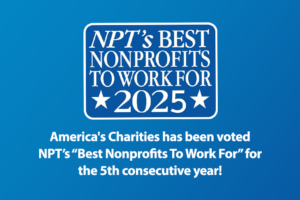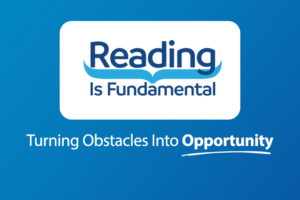Steve Delfin | November 1, 2013
Washington Post’s Article on Nonprofit Fraud Spawns Warranted Reaction from Charitable Sector
You have to hand it to the Washington Post. They sure know how to write a catchy headline. Their recent front page Sunday edition lead story, “Inside the Hidden World of Thefts, Scams, and Phantom Purchases at the Nation’s Nonprofits,” has spawned a reaction in the nonprofit sector that I believe is warranted.
People seem quite ticked at the Post’s massive over-reach to paint an entire sector as fraught with fraud. However, there is a good side to this. The Post’s story along with some other similar stories that focus on the “bad guys” has riled us up. For the first time it feels a little like the old line from the 1975 movie Broadcast, “I’m mad as Hell and not going to take it anymore!”
Well that’s good. We should be mad – but partially at ourselves for taking so long to coalesce. The charitable sector has changed significantly and we need to do a better, more consistent job at communicating those changes to the public. Once we do that, we can move beyond the conflicting expectations and misimpressions facing our industry.
Friends, neighbors and family members often ask me for advice about charities they are considering supporting. It usually starts with something like this, “I read the Post Story and they say most charities are being ripped off by their Boards and staff. Can you point me towards one of the good ones?” Or “I want to support charity X, but see that their CEO makes as much as I do. How can that be?”
My response is usually along these lines: I like the Post and believe they are one of the great journalism outlets in the world. But they don’t always get it right. Take time to research an issue that concerns you. If you’d like I’ll send you links to some stories and discussion threads on-line and some research that might help you see another perspective.
In short, part of our job as sector leaders is to stop, inform, educate and ensure this kind of story doesn’t go unchallenged.
Dan Pallotta’s Ted Talk on the Overhead Myth really took the discussion about re-thinking perceptions of charities to another level. While you may not agree with some of what he says, Dan certainly makes some solid points about how looking at the sector differently in terms of the professionalism needed (and demanded), the impact and outcomes that are required to address our largest problems, and what it takes to do that is absolutely vital.
I like to look at this from the perspective of conflicting expectations.
On one hand, charities are supposed to be creating innovative solutions to solve some of the nation’s toughest problems. They are asked to demonstrate excellence and proficiency in complex accounting, management principles, strategic planning and program delivery. The demand on charities by “watchdog” groups, state regulators, and others for transparency, accountability and additional administrative output requires professional expertise and often outside help and continuous education.
On the other hand, those same charities are expected to keep “overhead” low, not pay their employees anything close to what they’d make elsewhere, not have access to capital to innovate and grow, and have to be accountable to multiple stakeholders each with their own expectations about how a charity should operate.
We need to embrace and leverage the negative media attention we sometimes have to endure to turn the conversation around. This is our chance to unite and drive an informed national discussion about contemporary philanthropy and nonprofit management practices. In that regard, the best thing I feel I can do is point you toward those engaged in the discussion so you can see the varied perspectives, form your own and engage. The alternative is to be the subject of or have to react to the next story on “charity abuse.”
Here’s what others are saying about Washington Post’s Sunday Article:
- The Chronicle of Philanthropy: The Overhead Debate: Low Administrative Costs Make It Harder to Fight Thefts and Scams, by Kirsten Grønbjerg
- The Chronicle of Philanthropy: Nonprofits Must Respond Swiftly to Critical News Stories, by Tim Delaney (also posted on the National Council of Nonprofits web site)
- Nonprofit Quarterly: Washington Post Diversions Piece: What it Really Means, by Rick Cohen
- The Chronicle of Philanthropy: The Overhead Debate: Charities Risk Widening Rift With Donors Over Administrative Costs, by Brian Mittendorf
- Independent Sector: IS Statement on Washington Post Nonprofit Abuse Allegations, by Diana Aviv
Steve Delfin
|
Get Resources and Insights Straight To Your Inbox
Explore More Articles
For Fifth Consecutive Year America’s Charities Named ‘Best Nonprofit To Work For’
Washington, D.C. – April 1, 2025 – America’s Charities, the nonprofit that mobilizes the power of giving as a leading provider of volunteering, workplace giving,…
Read ArticleWorkplace Fundraising + Volunteering Summit (April 2nd and 3rd, 2025)
Join us in attending this virtual summit! The America’s Charities team is joining up with other leading voices in the workplace giving space for a…
Read ArticleThe Time to Act is Now
The results of the 2024 National Assessment of Educational Progress (NAEP) are in, and the findings are, in a word, heartbreaking. This assessment serves as…
Read ArticleGet Resources and Insights Straight To Your Inbox
Receive our monthly/bi-monthly newsletter filled with information about causes, nonprofit impact, and topics important for corporate social responsibility and employee engagement professionals, including disaster response, workplace giving, matching gifts, employee assistance funds, volunteering, scholarship award program management, grantmaking, and other philanthropic initiatives.


 Steve has 30 years of experience working in and with major national and international not-for-profit organizations and socially-responsible international corporations, including a long history of engagement with and leadership around workplace giving and employee volunteerism programs.
Steve has 30 years of experience working in and with major national and international not-for-profit organizations and socially-responsible international corporations, including a long history of engagement with and leadership around workplace giving and employee volunteerism programs.

